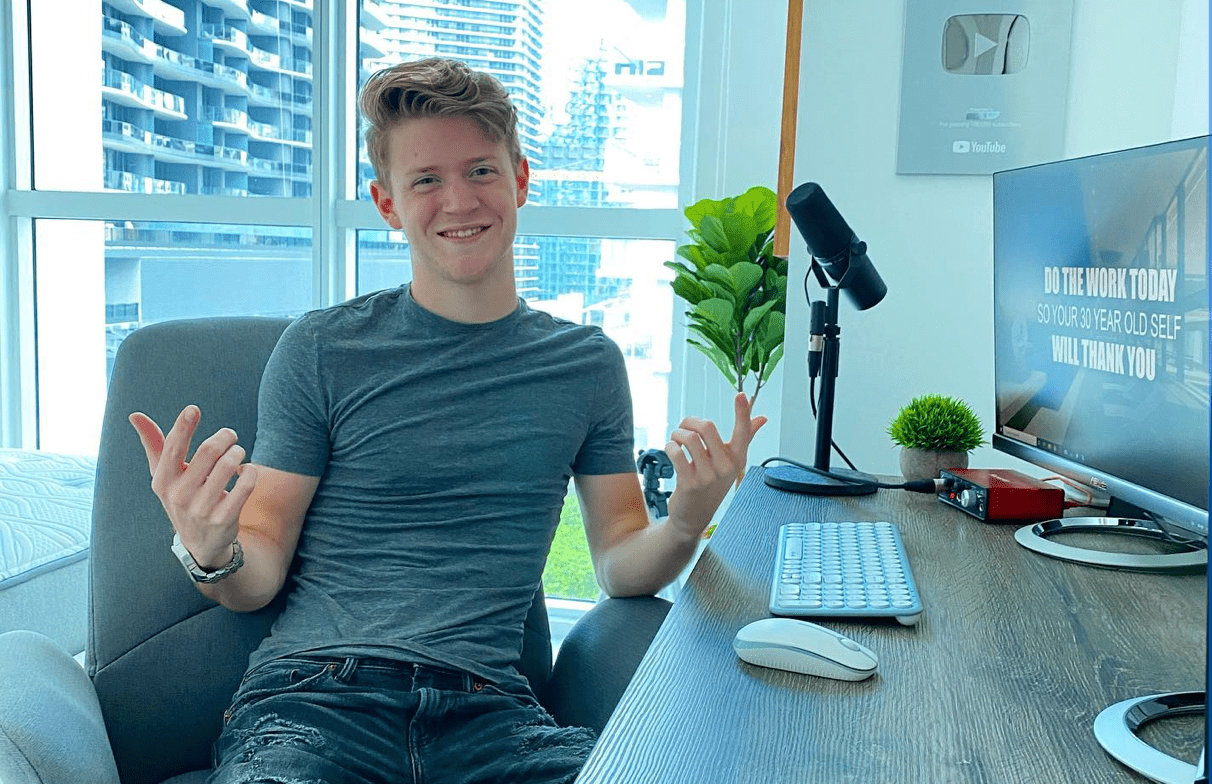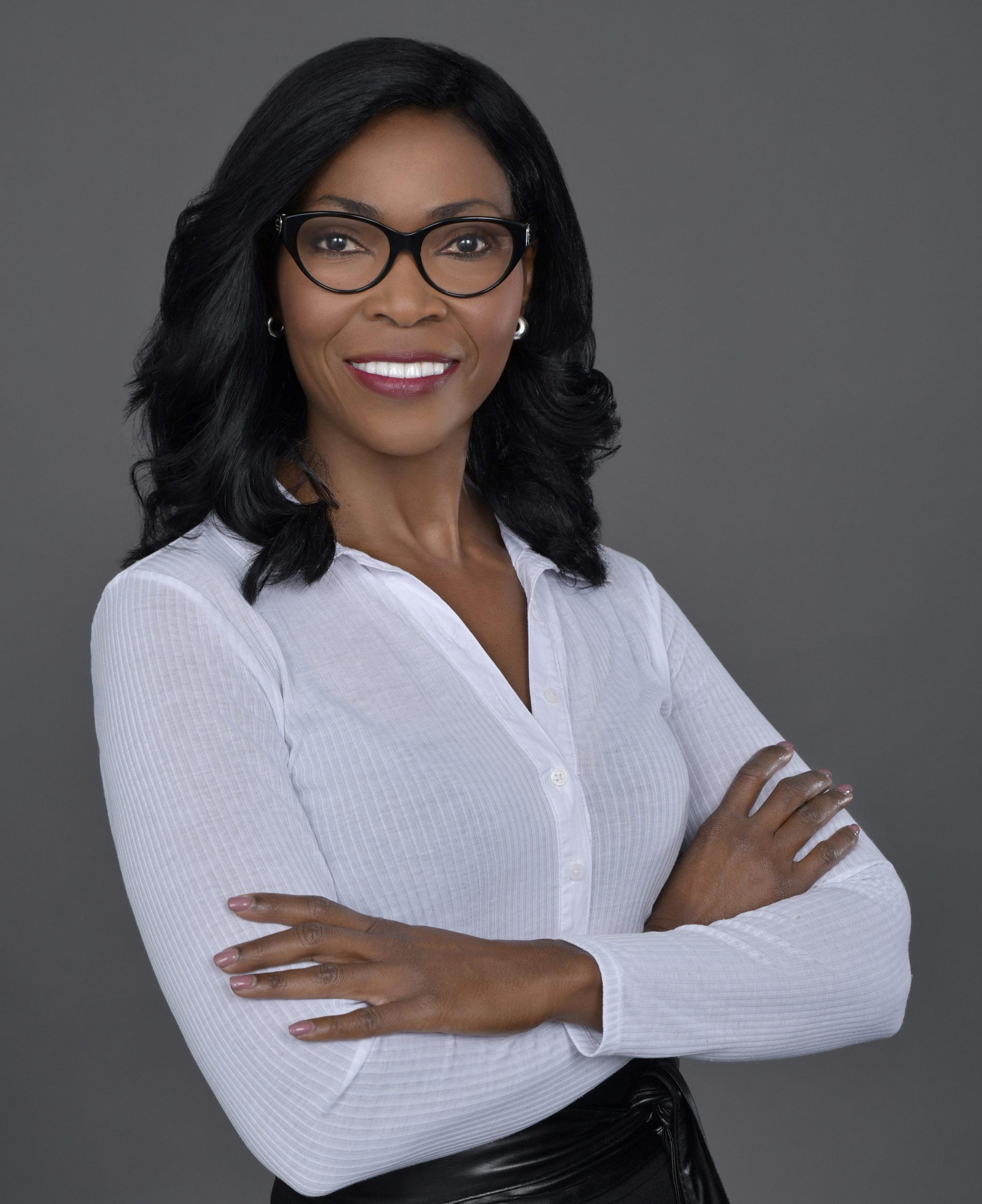Lifestyle
From High School Dropout to 22-Year-Old Millionaire: The Caleb Boxx Success Story

Many individuals grow up hearing the same things from their parents—you need to graduate high school, go to college and get a degree, and then you’ll land a nice, steady job that will support you and your family. There’s this belief ingrained in us all that our grades hold the key to our future. First to get into a good college, then to get a good job that makes our family proud.
The fact of the matter is a bit more bleak than the web our parents wove, however. Many study for years, take on thousands of dollars in debt, and then that degree they worked so hard for takes them to other places, or even nowhere. Or, they get the job and it isn’t anything like what they thought it would be. They’re miserable, they’re stuck, and they’re feeling hopeless.
Fortunately for some, like Caleb Boxx, founder of YouTube Automation and Automate Channels, they find out early on that the one-track plan for their future isn’t actually what they want. Boxx realized that there is more than just one road that can lead to success, and he started paving his own path at just 11 years old. Now, he’s a 22-year-old millionaire and he doesn’t have any regrets about the decisions he made to get where he is.
Starting Young
Entrepreneurship is a part of who Boxx is as a person. At 11 years old, instead of running around with his friends, Boxx created a website company. He would charge startups a fee to create their sites for them, though it’s probably safe to assume that none of them knew they had hired a child.
At 12 Boxx decided to take his wit and business savvy to YouTube, trying his hand as a gamer, though success didn’t strike right off the bat and he even quit the platform that his business now revolves around for a period of time.
“I started recording myself playing video games and nothing would ever happen,” said Boxx. “I was only earning $200 a month, so I quit the whole dream because it wasn’t working.”
At one point a friend of his went viral and amassed a million subscribers on YouTube. Boxx decided to once again chase his dreams, this time learning from someone who was already making that dream a reality. He turned into a livestream, donated the last $200 in his bank account, and asked for a quick call. He offered to edit his friend’s videos, write his scripts, and do a majority of his work all for free so he could gain admittance into his mastermind group.
This was the chance he needed and it wasn’t one he was going to waste. He wanted to be a professional so he started acting like one, gaining maturity and absorbing as much information about YouTube success as he could. He made vows with those in the mastermind group to focus solely on building their individual empires, setting a goal of reaching $1 million. Throughout this entire experience, he learned about more than just YouTube, he also learned about entrepreneurship.
Reaching Success
At just 16 Boxx used all the knowledge he had gained and created his first YouTube channel. A year later he made another one and immediately gained 80 thousand followers. After roughly six months with his channels, he was making around $20 thousand a month, a far cry from the $200 he started out with.
One thing led to another and he was giving 30% of his site revenue to one of his friends, helping them build their own successful channel. From there, revenue kept increasing and he was bringing in employees. At 18 he first started making seven figures, bought his dream car, moved to a new city, and started to study entrepreneurship more in depth.
It was at this point that people started to seek him out, asking if he could show them the ropes of YouTube and share the knowledge that helped him become successful on the platform. He created a business model and began to teach, allowing him to enter his 20s as a successful businessman. Now, Caleb offers a “done-for-you” mentorship program, where his company holds the hand of clients and manages all of their content.
The path Boxx chose wasn’t exactly orthodox or without challenges, but it was his own and something he wholeheartedly wanted. He went from a high school dropout to a 22-year-old millionaire, generating over $3 million from YouTube automations. Sometimes the path to success looks different than we thought it would, but with hard work and perseverance, anyone at any age can make their dreams a reality.
About Caleb Boxx
Caleb Boxx is a founder of YouTube Automation, a business model that allows people to automate their YouTube channels creating passive income. Boxx has helped hundreds of content creators. To learn more about Caleb Boxx, please visit https://www.automatechannels.com/
Lifestyle
Donnette Russell-Love on How Policy Changes Are Reshaping the Immigrant Experience in America

What happens when the rules for chasing the American dream keep changing? For millions of immigrants, the answer is anxiety, confusion, and a constant fight to stay one step ahead of shifting policies that can decide their future overnight.
This is the reality that Donnette Russell-Love, attorney and CEO of Immigration Care Service, faces every day. With a career built on both courtroom experience and compassionate advocacy, she has become a steady guide for individuals and families navigating one of the most unpredictable legal systems in the world.
A Changing Landscape
Over the years, U.S. immigration policy has shifted from being opportunity-driven to increasingly restrictive. Donnette Russell-Love has seen how these changes have reshaped not only the process but also how immigrants are perceived. She believes that leadership plays a major role in setting the tone; each administration influences whether the focus lies on inclusion, enforcement, or deterrence.
Under the current administration, the path to the American dream has become much narrower. There has been a stronger push to limit humanitarian provisions for people fleeing unstable conditions, less tolerance for long-term immigrants with even minor offenses from years ago, and growing efforts to challenge birthright citizenship.
These policies reflect a clear shift in how the United States approaches immigration. For many of her clients, the rules that once offered hope now feel like walls. Yet, her mission remains the same: to help them find a way through, one informed decision at a time.
Guiding Clients Through Constant Change
In an environment where laws and regulations can change faster than people can adapt, Donnette’s approach is built on preparation. She doesn’t just focus on forms and paperwork; she focuses on context. Her process starts with understanding each client’s story, background, and long-term goals. From there, she helps them see not just what’s required legally, but what’s likely to be asked, reviewed, or challenged along the way.
For her, education is the most powerful defense. She believes that informed clients are stronger, calmer, and more confident when facing interviews or hearings. She spends time explaining how new rules apply to their situations and how small details, like old records, travel history, or documentation, can make all the difference.
Her deep understanding of immigration stems not only from her legal training but also from her background in compliance and risk management. These skills have shaped her proactive style, allowing her to anticipate potential issues before they arise. Instead of reacting to policy shifts, she prepares her clients to adapt to them.
Leadership That Balances Law and Humanity
Running a law firm in such a turbulent field requires discipline, empathy, and vision, qualities that Donnette has cultivated over years of leadership. As the head of Immigration Care Service, she manages the balance between legal precision and genuine human care. Her team works closely with clients from diverse backgrounds, ensuring they receive not only sound legal guidance but also emotional support during uncertain times.
She also emphasizes the importance of staying grounded. Her philosophy is that immigration law is not just about policies or procedures, it’s about people. Every case represents a life story, a dream, or a second chance. And while the system may grow more rigid, her role is to help clients see that persistence and preparation can still lead to opportunity.
Moving Forward with Purpose
For Donnette Russell-Love, the work doesn’t end with one case or one victory. It’s about helping her clients understand the bigger picture, that success in immigration is not only about following rules, but about knowing how to navigate them with clarity and confidence.
She recognizes that the path to legal residency or citizenship is harder now than ever before. But her message is one of resilience: knowledge and preparation still open doors.
In a time when immigration policies seem to shift with every election cycle, Donnette’s approach stands out for its steadiness and humanity. She reminds her clients and the broader community that while laws may change, the pursuit of hope, belonging, and a better life remains constant. And with the right guidance, that pursuit is still worth every effort.
-

 Tech5 years ago
Tech5 years agoEffuel Reviews (2021) – Effuel ECO OBD2 Saves Fuel, and Reduce Gas Cost? Effuel Customer Reviews
-

 Tech6 years ago
Tech6 years agoBosch Power Tools India Launches ‘Cordless Matlab Bosch’ Campaign to Demonstrate the Power of Cordless
-

 Lifestyle7 years ago
Lifestyle7 years agoCatholic Cases App brings Church’s Moral Teachings to Androids and iPhones
-

 Lifestyle5 years ago
Lifestyle5 years agoEast Side Hype x Billionaire Boys Club. Hottest New Streetwear Releases in Utah.
-

 Tech7 years ago
Tech7 years agoCloud Buyers & Investors to Profit in the Future
-

 Lifestyle5 years ago
Lifestyle5 years agoThe Midas of Cosmetic Dermatology: Dr. Simon Ourian
-

 Health7 years ago
Health7 years agoCBDistillery Review: Is it a scam?
-

 Entertainment6 years ago
Entertainment6 years agoAvengers Endgame now Available on 123Movies for Download & Streaming for Free
